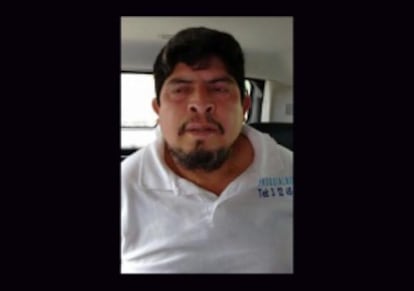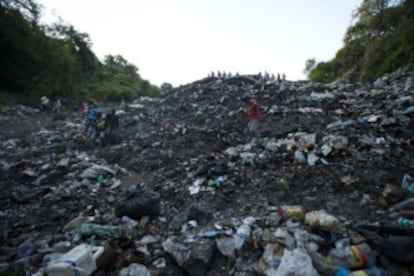Mexican police capture one of the masterminds behind Iguala massacre
The suspect, a former deputy police chief, was arrested at an exclusive country club


One of the masterminds behind last year’s kidnappings and murders of 43 teaching students in the Mexican town of Iguala has been captured by authorities at an exclusive country club, according to officials.
Francisco Salgado Valladares, who was deputy police chief in Iguala, Guerrero state, reportedly gave the order to arrest the students who had traveled to the town from neighboring Ayotzinapa to take part in a protest.
According to investigators, Valladares was on the payroll of a local drug trafficking organization, Guerreros Unidos, and turned over the students to hit men who later executed them at a dump site near the mountains.
Federal Police officers arrested the 41-year-old man in Cuernavaca, just outside Mexico City. Since the Iguala tragedy, Valladares had been hiding out with relatives at different properties in Guerrero and Morelos states.
At the time of his arrest, the suspect was getting inside his vehicle to attend a meeting. He was also found to be carrying bullets for an AK-47, an official report stated.
More than 100 people have been arrested in connection with the Iguala massacre, including the town’s mayor, José Luis Abarca, and his wife, who are also both said to have been on the Guerreros Unidos payroll.
Authorities are still searching for Iguala’s former police chief, Felipe Flores Velázquez, who was also allegedly cooperating with the local drug ring.
Following the tragedy, the entire police force was disbanded, the state governor resigned, and President Enrique Peña Nieto sent federal security forces to Guerrero.
Investigators said Valladares received 600,000 pesos (about $42,000) a month from Guerreros Unidos.
The trafficking organization terrorized Iguala and its surrounding towns, often leaving the bodies of those who opposed their operations out in the open.

The students had come to Iguala that day to protest against a campaign rally organized by the mayor’s wife. She was set to run for her husband’s post in this year’s municipal elections.
The people in charge of security, including Valladares, were given orders to stop the students. Subsequently, a skirmish broke out and police fired at the crowd, killing three students.
Officers then rounded up the remaining 43 and hauled them off in police vehicles. The students have not been seen since.
International forensic experts have discovered charred remains in a nearby river but have been unable to identify all of them because the DNA was destroyed when their bodies were burned in a bonfire following their execution.
Only one student’s remains have been positively identified.
Family members of the students, who do not accept the official version of the events, have said they believe their loved ones were killed by Mexican military forces.
Tu suscripción se está usando en otro dispositivo
¿Quieres añadir otro usuario a tu suscripción?
Si continúas leyendo en este dispositivo, no se podrá leer en el otro.
FlechaTu suscripción se está usando en otro dispositivo y solo puedes acceder a EL PAÍS desde un dispositivo a la vez.
Si quieres compartir tu cuenta, cambia tu suscripción a la modalidad Premium, así podrás añadir otro usuario. Cada uno accederá con su propia cuenta de email, lo que os permitirá personalizar vuestra experiencia en EL PAÍS.
¿Tienes una suscripción de empresa? Accede aquí para contratar más cuentas.
En el caso de no saber quién está usando tu cuenta, te recomendamos cambiar tu contraseña aquí.
Si decides continuar compartiendo tu cuenta, este mensaje se mostrará en tu dispositivo y en el de la otra persona que está usando tu cuenta de forma indefinida, afectando a tu experiencia de lectura. Puedes consultar aquí los términos y condiciones de la suscripción digital.








































